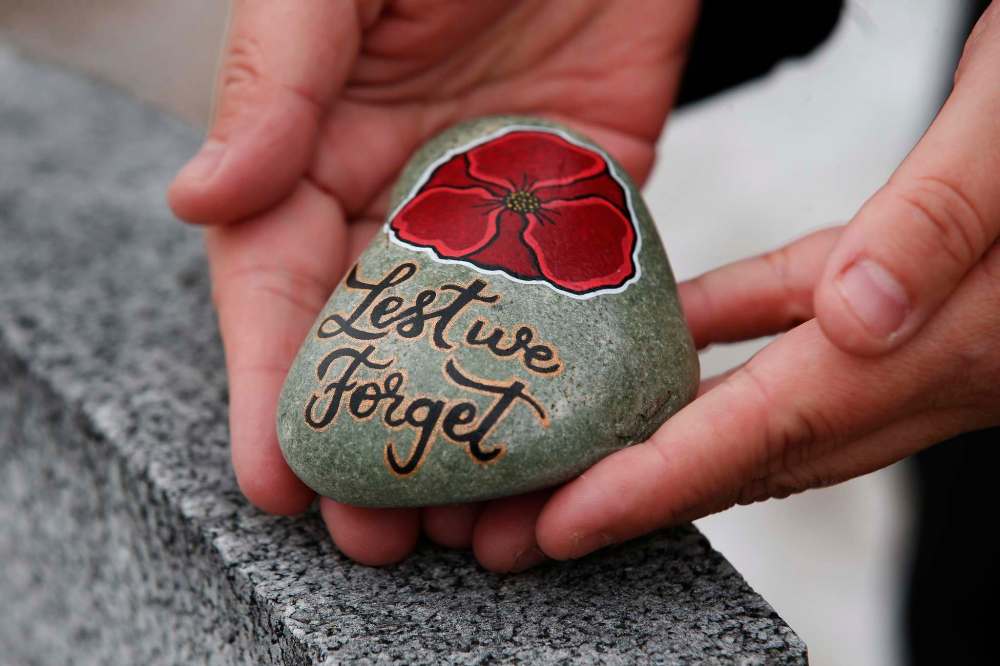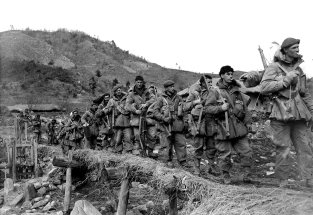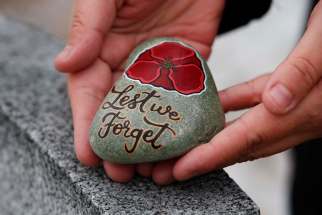Despite COVID-19, we still remember
Read this article for free:
or
Already have an account? Log in here »
To continue reading, please subscribe:
Monthly Digital Subscription
$0 for the first 4 weeks*
- Enjoy unlimited reading on winnipegfreepress.com
- Read the E-Edition, our digital replica newspaper
- Access News Break, our award-winning app
- Play interactive puzzles
*No charge for 4 weeks then price increases to the regular rate of $19.00 plus GST every four weeks. Offer available to new and qualified returning subscribers only. Cancel any time.
Monthly Digital Subscription
$4.75/week*
- Enjoy unlimited reading on winnipegfreepress.com
- Read the E-Edition, our digital replica newspaper
- Access News Break, our award-winning app
- Play interactive puzzles
*Billed as $19 plus GST every four weeks. Cancel any time.
To continue reading, please subscribe:
Add Free Press access to your Brandon Sun subscription for only an additional
$1 for the first 4 weeks*
*Your next subscription payment will increase by $1.00 and you will be charged $16.99 plus GST for four weeks. After four weeks, your payment will increase to $23.99 plus GST every four weeks.
Read unlimited articles for free today:
or
Already have an account? Log in here »
Hey there, time traveller!
This article was published 10/11/2020 (1857 days ago), so information in it may no longer be current.
Since Remembrance Day was first observed in 1919, none has been like the one marked this year.
The restrictions on crowds that are necessary because of the COVID-19 pandemic have thrust new challenges at the time-honoured memorial.
In Manitoba the importance of the occasion is recognized as a statutory holiday and, traditionally, many Manitobans adorn themselves with red poppies they purchase from Legion members holding white boxes of the plastic flowers at public places such as the entrances to stores. But not this year.
Many Manitobans usually gather at observances in communities throughout the province, including a large crowd at the RBC Convention Centre in Winnipeg, but the doors of most public places will remain locked Wednesday.
The traditional Remembrance Day ceremonies, resounding with the lamentation of bagpipe dirges, often led teary-eyed attenders to hug each other as they pondered the horrors of war, but the bagpipes will remain silent this year.

So, is Remembrance Day cancelled due to COVID-19? Absolutely not.
The normal ceremonies have been usurped by the physical distancing restrictions necessary to stop the spread of the deadly coronavirus, but lest we forget.
During the First World War, which Remembrance Day initially commemorated, a total of 7,760 enlisted Manitobans died, with thousands more wounded, physically and mentally. They and the subsequent generations of soldiers believed they were fighting to keep us free from tyrannical governments bent on occupying other countries.
They believed in peace, a sentiment that by itself is not unique. Most people, if asked, will say they also believe in peace.
The difference with the people who donned the colours of Canada’s military is that their belief in peace was backed up by action. They had the courage to serve their country, knowing full well it might cost their lives. King George VI said it well during the dedication of the National War Memorial in Ottawa in 1939: “Without freedom there can be no enduring peace and without peace no enduring freedom.”
An important observance that hasn’t changed happens Wednesday at 11 a.m., when everyone is encouraged to take a moment of silence.
To continue to remember their sacrifices, even during a year when we can’t gather in the usual ways, is to honour those who died in the line of duty and the more than two million Canadians who have served and who continue to serve.
In this most unusual of years, the Royal Legion of Canada has adapted its campaign. Instead of Legion members fanning out across Manitoba in person, this year’s poppy campaign includes “pay tribute” boxes at places such as stores; the boxes have a poppy tap pad that lets people donate with tap technology such as smart phones before they take a flower, with proceeds going to a trust fund for veterans and their families.
Remembrance Day ceremonies will also be streamed online, and covered by mainstream media.
An important observance that hasn’t changed happens Wednesday at 11 a.m., when everyone is encouraged to take a moment of silence. The specific timing acknowledges that it was at the 11th hour on the 11th day of the 11th month when the Great War ended in 1918.
It’s an appropriate moment to ponder the freedoms we have, and the Canadians who protected those freedoms by paying the highest price.
















